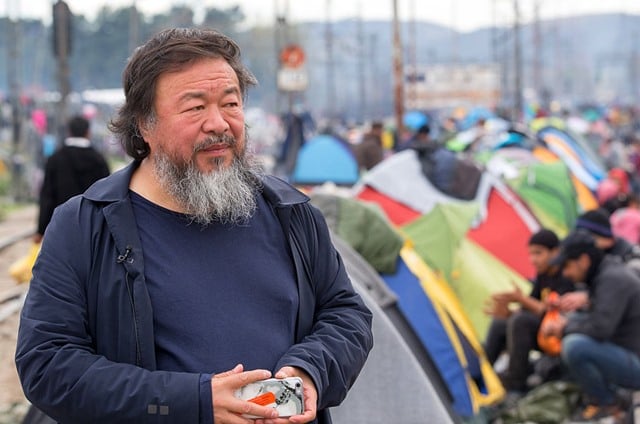Art World
Ai Weiwei’s Film About the Refugee Crisis Will Be Released in Summer 2017
The artist says that he can empathize with refugees.

The artist says that he can empathize with refugees.

Perwana Nazif

Ai Weiwei’s documentary film project, “Human Flow”, is set to be released internationally in late summer of this year.
Over the course of the past 12 months, Ai Weiwei and his film crews have visited 22 countries with large migrant and refugee populations, including the US-Mexican border and refugee camps in the Greek islands, filming footage for “Human Flow,” a feature documentary about the world’s refugee crisis.
“A refugee could be anybody. It could be you or me,” the artist told AFP, a sentiment directed towards people who are in favor of closing borders to refugees, like American President Donald Trump. “The so-called refugee crisis is a human crisis,” he continued.
Regarding the recent political climate in the United States and the president’s labelling of “groups of people as terrorists or drug dealers,” Weiwei said he sees it as “quite sad, quite disturbing … in many ways going backwards.”
The artist has been active in his support for refugees and migrants, despite mixed reactions.
Among his more scandalous works were his installations made from refugee life jackets at the Konzerthaus concert hall in Berlin and, later, at Vienna’s Belvedere Palace. A more distasteful piece included his recreation of the image of the 3-year-old drowned Syrian child, Alan Kurdi.
Weiwei set up a studio in Lesbos, Greece early last year, where he also volunteered at the Moria refugee camp, famously had his hair cut at the Idomeni border camp, and organized a performance by young Syrian pianist Nour Al Khzam.
“I have been put in the same kind of situation and it’s very possible it can happen to me again. This is the reality,” said the artist, referring to his own experience of exile contributing to his interest in the refugee crisis.
“So I am very sensitive to people forced by different reasons—it could be political, war, famine, environmental problems—to seek, willingly or unwillingly, new locations and possibilities.”